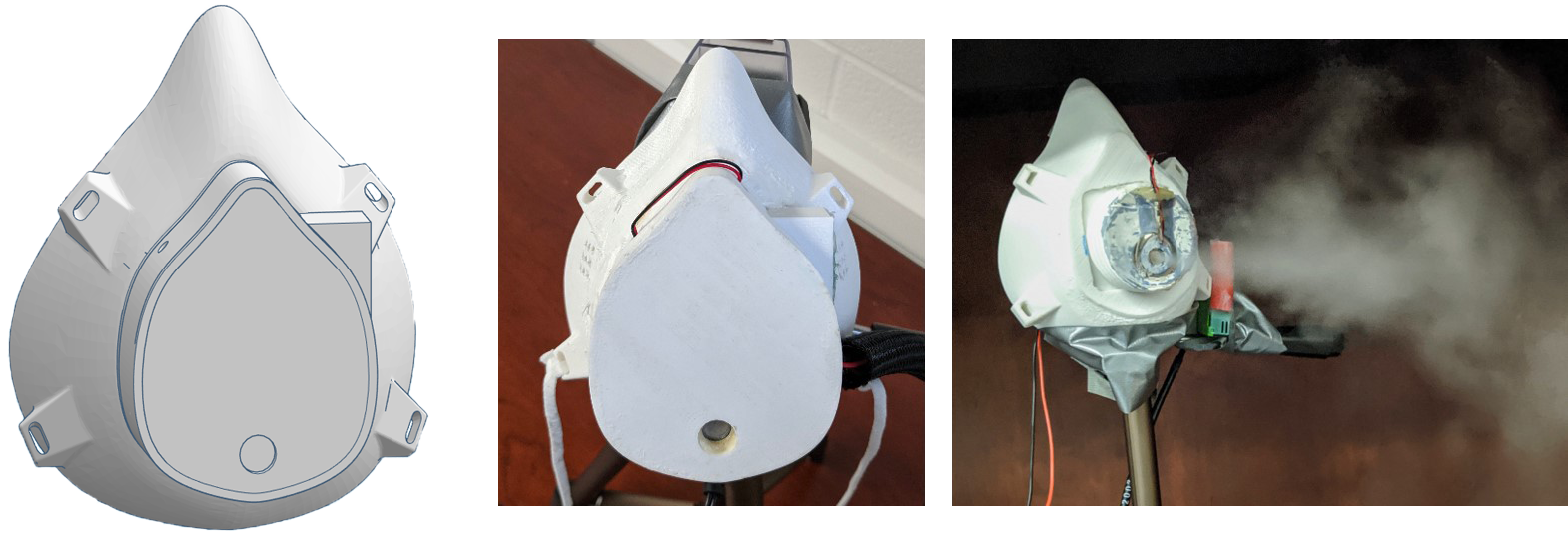When COVID-19 upended our lives in early 2020, some of the brightest engineering minds across the globe got to work. Members of the Warren B. Nelms Institute for the Connected World came forward to join this global task force to fight the pandemic. Using our research expertise and creativity, we implemented smart connected systems to monitor, detect, and prevent the spread of infection through smart wearable devices.
One device is the ADAPT smart mask (pictured). We wanted to come up with an active device that not only prevents infection but that also effectively goes after the virus. A sensor in the mask detects particles the size of coronavirus droplets. The mask then releases water mist that both blows virus-laden droplets away and clings to the airborne virus, causing the particles to fall to the ground.
The RiskBand device addresses the issue of social distancing in traditionally crowded settings such as K-12 schools and universities. The connected wearable devices would alert students with a signal light and vibration if they are too close to a classmate. The detected signals can be stored locally on the wearable device to preserve privacy and estimate exposure risks as needed. By tracking this information, contact tracing could happen in minutes.
The TRIDENT smart band is designed to detect onset of infection by monitoring vitals, such as temperature spikes. The device is built on an Internet of Things (IoT) infrastructure that utilizes a three-pronged suite of connected sensors and devices. The components work in conjunction with one another to provide real-time alerts to individuals, and guidelines for precautionary measures while constantly assessing the risk of contracting or spreading the virus.
Additionally, Dr. Xiaochen Xian, a Warren B. Nelms Institute faculty member, received funding from the National Science Foundation (NSF) to support her research to develop adaptive sampling strategies for administering mass testing for COVID-19. The research would establish a reliable framework to identify patterns of virus transmission among vulnerable communities and minimize waste of testing resources.
Through our research at the Warren B. Nelms Institute we continue to work towards mitigating the spread of COVID-19. We look ahead towards a brighter future where we hope to see these devices making a real difference in the world.
Swarup Bhunia, Director, Semmoto Endowed Professor, ECE
My T. Thai, Associate Director, UF Research Foundation Professor, CISE
